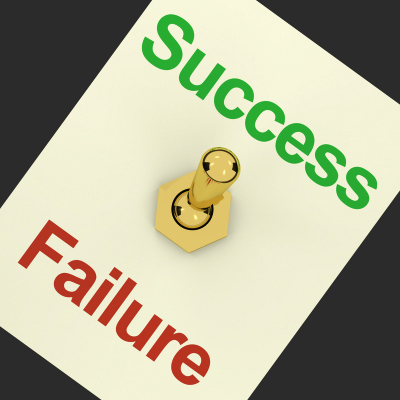CEO Blog - Advice for CEOs on growth and scaling
The Rise and Fall of Executives

This blog is written by guest blogger Per Ohstrom.
In my years in business, I have noticed how top executives often come out of Operations, which
is a little counter- intuitive considering the number of highly trained Finance, Marketing or R&D managers there are in organizations. I have also seen execs crash and burn, who used to be well performing in a functional role. What’s going on?
In a report from the Chally Group “Why Global Leaders Succeed and Fail”, published by Right  Management, the researchers share some interesting findings.
Management, the researchers share some interesting findings.
The four most important competencies for successful general managers are:
- Creating a Strategic Vision
- Inspiring Others and Maintaining Leadership Responsibility
- Developing an Accurate and Comprehensive Overview of the of the Business
- Decision Making
These are the kinds of skills that are practiced and refined in operations-type assignments. However, once in the C-suite, succession planning and bench strength become very important, and this is where the trouble starts.
The report explains what factors contribute the most to failure of senior leaders, the biggest is Failure to Build Relationships and a Team Environment, followed by cultural mismatch, failure to deliver results, and inability to win company support. Other derailment reasons include poor communication, lack of training and arrogance.
LEADERSHIP DEVELOPMENT
It would be more effective to groom talent inside an organization, but some executives coming up through the ranks do not prefer to groom successors, since they are seen as threats. In spite of overwhelming evidence that organizations that develop their high potential managers reap competitive and financial advantage, organizations continue to neglect to develop their highly ranked managers.
How do successful companies build bench strength and fill the HR pipeline? The most effective approaches are commonsense: on-going coaching and mentoring, development assignments (learning on the job), formal assessment and feedback and cross functional team projects. When this does not happen, it is often due to perceived limited resources and difficulties balancing short- and long- term business requirements.
Think about it. Who was your favorite boss? Chances are he or she was the one giving you stretch goals and exposure to other businesses or functions. Effective people development requires staffing correctly and setting stretch goals, as well as providing and soliciting on-going feedback.
THE DANGER OF FLATTERY
On the subject of ineffective bosses, Kellogg professor Ithai Stern has done research on ingratiation or, in plain English: flattery (Park, Sun Hyun, James D. Westphal, and Ithai Stern. 2011. “Set up for a Fall: The Insidious Effects of Flattery and Opinion Conformity toward Corporate Leaders.” Administrative Science Quarterly. 56(2): 257-302).
The paper suggests high levels of flattery from a team of “yes-men” can make the leader overconfident, and unable to adjust strategy as needed. It is important for a leader to solicit advise also from people who do not depend on the leader for their salary and career development.
Here is how I think it works in the real world:
- A pipeline of leaders is best developed with rotational and cross-functional assignments, and on-going coaching and feedback to reinforce learning
- General management requires a specific skill set. Once in the corner office, leaders must forget every technical skill they have acquired, and instead focus on grooming and developing their people
The more powerful a leader is, the greater the risk of losing touch and becoming over-confident and arrogant. Hence it is important for leaders to surround themselves with advisers that dare speak truth to power.
Author
 Per Ohstrom is a B2B marketing exec and consultant. He thinks and writes about service marketing, strategy, leadership and international business. Per is also a retired Swedish Army officer (40 below, ten feet of snow, anyone?) Contact him at pohstrom11994@kellogg.northwestern.edu, and read his blog at perohstrom.com
Per Ohstrom is a B2B marketing exec and consultant. He thinks and writes about service marketing, strategy, leadership and international business. Per is also a retired Swedish Army officer (40 below, ten feet of snow, anyone?) Contact him at pohstrom11994@kellogg.northwestern.edu, and read his blog at perohstrom.com
Topics: Business Leadership and Strategy, CEO Motivation, Culture, Leadership Traits
Wed, Jul 24, 2013Related Articles

- Press Releases
- Careers
- Case Studies
- Marketing Consultant Company
- Marketing Strategy Consultants
- Marketing Plan Consultants
- B2B Marketing Consultants
- Virtual CMO
- Marketing Consultant Outsourcing
- Fractional CMO
- What is a Fractional CMO
- Healthcare Marketing Consultant
- Marketing Consultant Houston TX Texas
- Marketing Consultant Texas TX
- Marketing Consultant Bay Area
- CEO Blog
- Ebooks Plus
- Executive Marketing Consultants
- Product Marketing Consultants
- B2C Marketing Consultants
- Virtual Marketing Consultants
- Senior Marketing Consultants
- Temporary CMO
- Hire a CMO
- Fractional CMO Salary
- Fractional CMO Responsibilities
- Marketing Consultant Austin TX Texas
- Marketing Consultant Dallas TX Texas
- Marketing Consultant San Antonio
- Helping Private Equity
- Private Equity Blog
- Leadership Team
- Privacy Policy
- Business Marketing Consultants
- Strategic Marketing Consultants
- Marketing Technology Consultants
- Sales and Marketing Consultants
- CMO Job Description
- CMO Salary
- Fractional CMO Agency
- Fractional CMO Services
- CPG Marketing Consultant
- Marketing Consultant San Diego
- Partners
Houston, TX 77056
© 2023 Chief Outsiders

